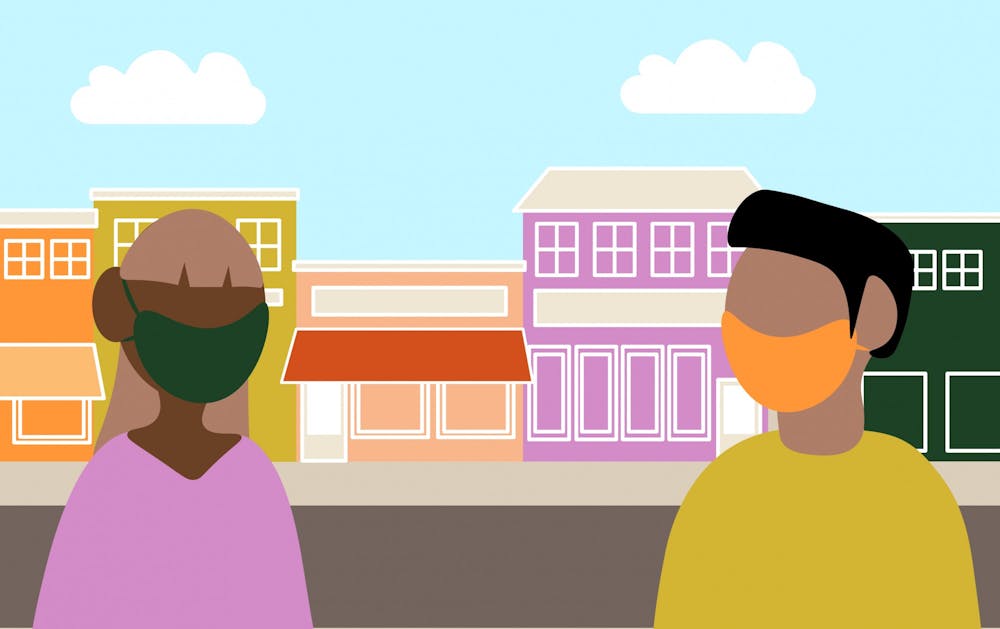After Gov. Doug Ducey's stay-at-home order expired on May 15, Arizona has seen a record spike in new cases of COVID-19, the disease caused by the new coronavirus.
For a seven-day average, Arizona has had more daily new cases of the virus per capita than any other state, and the total number of hospitalizations has doubled since April.
Although many might see these developments as a reason to stay home, Arizonan party-goers are filling bars and restaurants. It has been reported that workers at these establishments are becoming sick from the coronavirus, forcing some establishments to close again temporarily.
I'm not trying to scold anyone for going out with friends — I'm in no position to do that anyway, as I've gone out myself more than once this summer. And, even if I did successfully bully some readers into staying inside, our few, collective individual choices wouldn't amount to much of a difference.
Instead, the slogan to "stay inside" should be taken up on a wider, society-wide scale to protect our workers and our communities, two groups that are the most vulnerable to the disease.
Luke Maldarella, a senior studying political science and a coffee shop worker, thinks the government should have taken action earlier to prevent the spread of coronavirus.
"From the beginning, Arizona was behind the curve in implementing these restrictions," Maldarella said. "Our very relaxed method of social distancing didn't really work."
Maldarella says that crowds in Tempe haven't been adhering to social distancing guidelines.
"C.A.S.A., for example, is usually pretty packed. There are big friend groups walking around Downtown Tempe — usually no masks either."
This scene stands in contrast to many of the ongoing protests in Arizona in reaction to the police killing of George Floyd, which have been causes for concern for health experts. Maldarella says the protests he has witnessed largely follow safety guidelines.
Maldarella says that, judging from his observations on Mill Avenue and what he's learned on the news, discretionary travel should still be avoided to protect workers.
"(Workers on Mill Avenue) are put in danger because they've agreed to work on the uncertain terms that social distancing will be enforced," he said. "They're being put in a tough situation."
Workers don't get a choice when it comes to earning their livelihood. In a state which has proven itself more than willing to allow people to die for the sake of reopening the economy, essential workers have been thrown back into the labor market before the presence of the coronavirus was properly controlled.
And, in light of record unemployment, workers aren't in a position to quit and find a more accommodating employer either. With a rapidly contracting economy, we need to put our community and working people at the forefront of our thinking.
So, please, don't let your guard down yet if you can help it. There are quite a few socially distant alternatives for dating or for seeing a few friends that will keep us all safe in the meantime.
The blame for the resurgence of the virus doesn't lie with protesters against police terror, or even with the partygoers on Mill.
Ducey's greed, demonstrated by his demand for economic reopening, whatever the costs, has allowed this totally avoidable disaster to take place.
Reach the columnist at smisceni@asu.edu or follow @IMiscenich on Twitter.
Editor’s note: The opinions presented in this column are the author’s and do not imply any endorsement from The State Press or its editors.
Want to join the conversation? Send an email to opiniondesk.statepress@gmail.com. Keep letters under 500 words and be sure to include your university affiliation. Anonymity will not be granted.
Like The State Press on Facebook and follow @statepress on Twitter.




